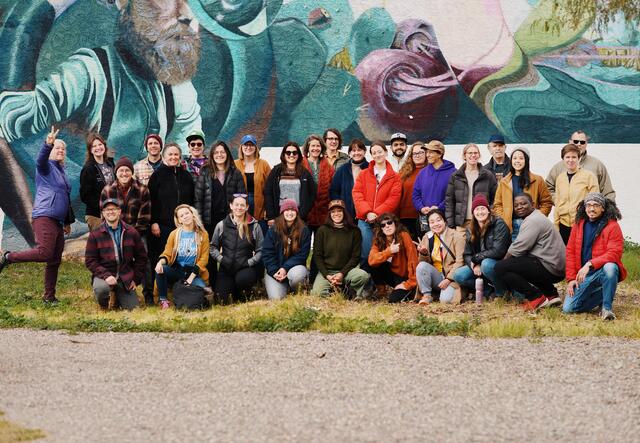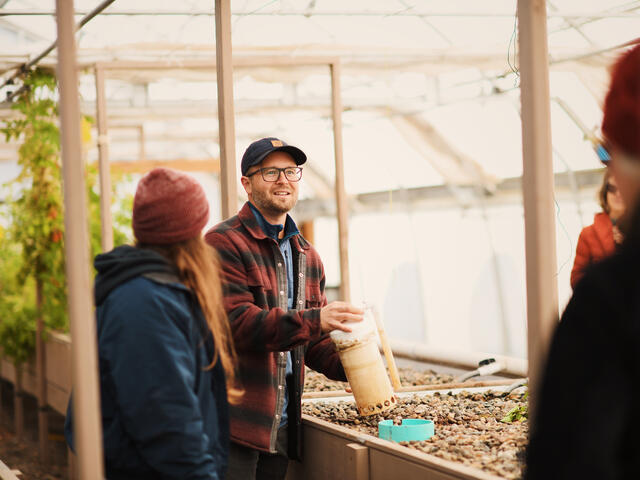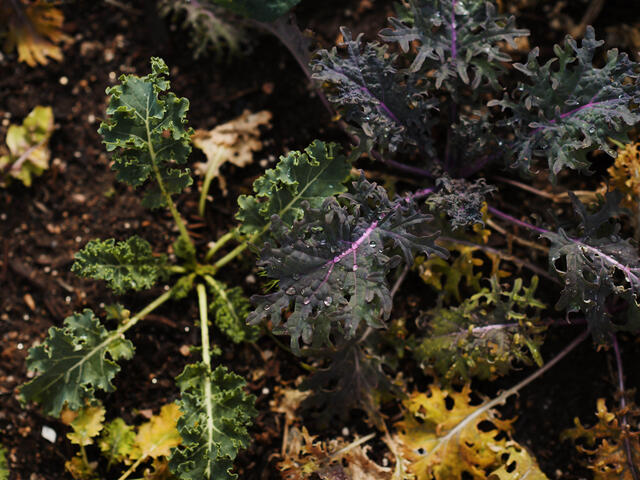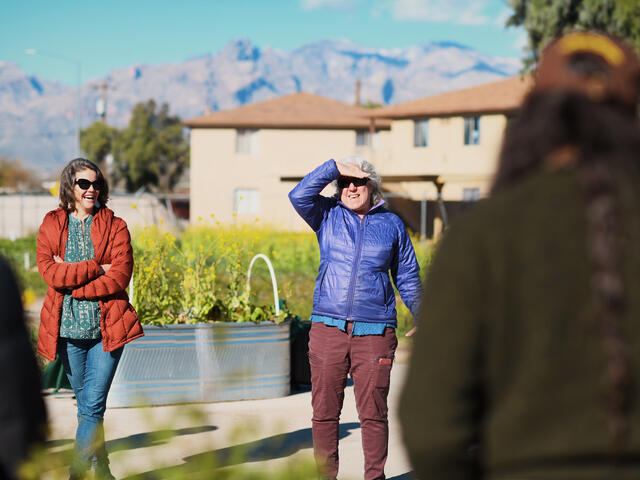
Reunited and it Feels so Good
Established over 13 years ago, IRC’s New Roots Food & Agriculture program now spans across 13 U.S. cities.
All programs within New Roots aim to support new Americans and refugees with the proper tools and resources to grow fresh produce. As is the case with most IRC programs, grants allow for continued services, offer additional resources, and provide funding to help support new initiatives.
In the Spring of 2020, the IRC was the subgrantee of a grant awarded by the Institute for Social and Economic Development (ISED). This grant funded a three year project called, Beginning Farmer Rancher Development Program (BFRD). Groups who fall under this grant are essentially learning about methods to better support farmers, “through trainings, workshops, and benchmarks,” Phoenix New Roots Development Coordinator, Isaac, explained.

While the hope was for those involved in this project to get together once a year to talk about the challenges and progress made, due to the COVID-19 pandemic, it was not possible.
Earlier this month, was the first time in a few years that New Roots representatives from five IRC offices were able to convene, in person, in Arizona for a few days. “Just being able to connect and talk about our programs, share our challenges and best practices has been good. And then, we’re excited to have everyone here at Camel Backyard to be able to do a site visit and kind of show off what we have been doing too,”Jillian, Phoenix New Roots Manager (IRC Phoenix), shared.
The Tucson and Phoenix New Roots teams were able to provide a tour of their farm sites. Phoenix participates in local markets offering farmers the opportunity to sell their organically grown fruits and vegetables within their community, while Tucson partners with local organizations to better support farmers.
Experiential Learning
New Roots’ Technical Advisor of Food Security & Agriculture, Aley Kent, gave a training on experiential learning and how teams can teach refugee farmers using different methods and prepare materials which can allow for better understanding through the use of visual elements. “One is to help build staff skills in training…how do we speak in ways that are most understandable, especially to people who don't speak English as a first language,” Kent said.

Thinking back to when we were students in school, we all absorbed information differently. Some of us were visual learners, some learned by doing, and others by reading. That was also dependent on where we went to school and the resources our educators had.
The IRC New Roots teams welcome clients from all over the world, who come from different educational backgrounds and levels of understanding. With the vast amount of knowledge about farming methods and agriculture our teams have, one aspect of the new project under this grant is to help ensure that information is presented to farmers in a way that is easily understandable. “There's been a lot of training on how to better use images and how to use graphic design principles to make the printed materials that we're using,” Kent shared.
Agroecology

Another aspect of this conference was discussing Agroecology and ways to implement those sustainable practices at the local farm sites that the IRC has. “If you put pesticides in the farm next door, that’s going to seep into the watershed, which is going to seep into the water where all the water flows through.” Morgan, Phoenix Senior New Roots Local Food Coordinator, explained.
With the effects of climate change that have been tracked over the years, and how the change in weather affects produce that is grown throughout the year it was beneficial to hear from other teams. They discussed, “how can [they] can do farming in a way that is environmentally friendly and will continue to use resources like land, water and other natural resources for food production,” Marcus, Phoenix New Roots Farm Coordinator, said.
Time Well Spent
What initially started out as a program to support refugee farmers has expanded into an open community of local members and partners who want to get involved, learn and engage. “There is this whole community of, rich and poor and U.S born. and not who are becoming part of our community through these spaces and then a part of one another's community as well,” Kent said.

As New Roots teams continue to grow, time to reconnect is more important than ever. There is nothing quite better than in person connections and that was proven during this conference. Being in person allowed for brainstorming and idea sharing in ways that felt more natural and free-flowing than virtual options,” Julia, Tucson New Roots Program Coordinator, shared.
It was a productive few days full of insightful discussions and brainstorming sessions resulting in the development of stronger connections across teams. “Afterwards, I felt refreshed to tackle some of the ongoing barriers that our program participants have faced and now have a stronger network that I can access for support,” Carla, Tucson’s New Roots Education & Outreach Specialist, expressed.
Learn More
Are you interested in getting involved with our New Roots programs in Phoenix and/or Tucson?
Please visit the links below for more information:
Phoenix
- About: New Roots Phoenix
- Social Media: New Roots Phoenix FaceBook + Instagram
- Volunteer Opportunities: Please email Isaac.Jensen@rescue.org
Tucson
- About: New Roots Tucson
- Social Media: New Roots Tucson Instagram
- Volunteer Opportunities: Please email Julia.Munson@rescue.org